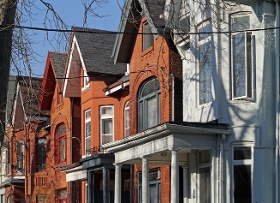‘How is the market?’ This is the most frequent question I am asked as a real estate agent. While the question is simple enough, the answer is surprisingly complex. The better question to ask is, ‘How is My market?’
The state of Vancouver’s real estate market is a frequent topic on the evening news. News anchors and economic experts alike are constantly reporting the situation as either “good” as prices rise or “bad” as prices fall. What they don’t report is what these assessments are based on and for whom is it ‘good’ or ‘bad’ news?
Recently the real estate market has been reported as ‘good’. After a year of low sale volumes and stagnant or declining prices, we are now seeing an uptick in buyer interest, sales and prices. This broad picture of the market may be a good indicator of the state of the economy as a whole, but what does it mean for a specific individual or family? To get an accurate assessment of the situation for a buyer or seller in a particular market we need to take a much closer look. This is where a good Realtor becomes a valuable asset.
The numbers we hear reported on the news are usually averages for all property types across the entire Greater Vancouver area. Unfortunately, these numbers don’t tell you about the specifics of your home or neighbourhood, and are disproportionally affected by high value homes and high turnover neighbourhoods. This means they are often not reflective of median or lower priced homes or less active communities.
Moreover, the latest statistics are ‘good’, only if you are a property owner looking to downsize, refinance or move away from Vancouver. Thirty five percent of Greater Vancouver households rent. Most of these renters would love to own a home if they could afford it. And of the remaining sixty five percent who own, many would like to upsize or move to a more desirable location. Therefore, what the news calls ‘good’, is only good for a small portion of the population.
‘How is MY market?’
Your personal housing market is determined by a number of different considerations:
* Are you buying or selling? Upsizing or downsizing?
* What neighbourhood or community are you in? Where ideally would you like to live?
* If you are looking for investment properties, what are the rent and vacancy rates in a given neighbourhood?
Understanding your market is about knowing the details of your unique situation. A professional Realtor is an essential partner in researching your market and interpreting the complexities of the real estate industry so you can make the best decision for your unique situation.
As an illustration, let’s consider the situation in two adjoining East Vancouver neighbourhoods; Grandview and Hastings. Even though they are close to one another, each neighbourhood has a very different feel and a different mix of condos, townhouses and single family homes. These differences lead to very different sales numbers in any given month.
For instance, during the month of April 2013, the Grandview neighbourhood was fairly active with 25% of listed homes selling. Sale prices for single family homes and townhouses were up 2.12% and 2.27% respectively, while condos were down -0.07%.
In Hastings, sale numbers for the same month were slower with less than 15% of listed homes selling. Single family homes dropper -0.7% in price while condos and townhouses were up 0.95% and 4.16% respectively.
Based on the information above, those considering selling a single family home or duplex in Grandview are in a good position right now. Houses are selling well and purchase prices are showing a modest rise.
If you’re considering selling your house or condo in the Hastings neighbourhood you’re in a different position. Depending on your situation you might consider waiting until prices and buyers’ interest increases. If you’re thinking of selling a townhouse or duplex in this neighbourhood expect a good price but a longer wait for a buyer.
For those considering buying (and most sellers are buyers as well), Hastings would be a good place to look. However, while prices may have dropped in April, Hastings has been the fastest appreciating neighbourhood in East Vancouver over the last 3 months and the last 3 years. Is it an up-and-coming neighbourhood or a bubble starting to burst? To truly understand the market we must look a little deeper
These are just two examples of sub-markets in Vancouver. Understanding the specific circumstances of your chosen area, housing type, and amenities can make all the difference in making sure you get the best deal at the right time.
Interested in learning more about YOUR market? Call 604-254-2549 or email noam@noamdolgin.com for a free consultation.








